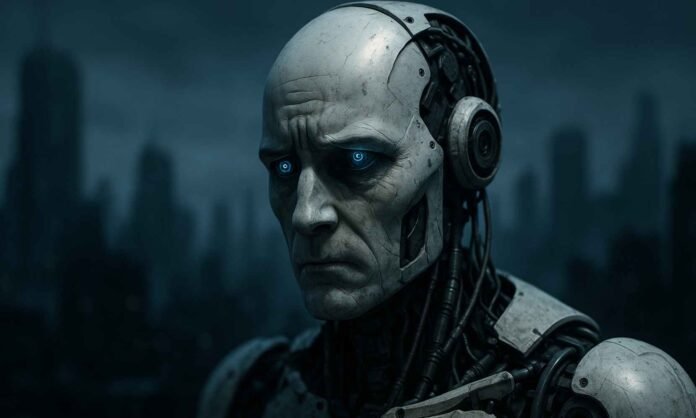- DeepSeek researcher warns AI could eliminate most jobs within 20 years.
- His proposal for tech companies to “reshape society” alarms critics.
- Experts argue profit-driven firms cannot act as guardians of humanity.
- Real AI governance requires public oversight, not corporate control.
Artificial intelligence continues to advance at a breathtaking pace, reshaping industries and rewriting the rules of work. DeepSeek senior researcher Chen Deli recently warned that AI could erase most human jobs within two decades.
His message caught global attention because of DeepSeek’s growing influence and its low-cost models that disrupted the AI market. Yet what truly made headlines was not his warning, but his proposed solution, one that might be even more troubling.
The End of the Honeymoon Phase
According to Chen, society is in a temporary “honeymoon phase” with AI. The excitement around productivity and innovation hides an approaching storm of mass layoffs. He compared it to a slower, less deadly version of the Black Plague for how deeply it could reshape lives and institutions.
While many experts agree that automation will replace a wide range of jobs, Chen’s idea that tech companies should “guard humanity” has alarmed critics. He argued that corporations developing AI should take responsibility for protecting human safety and helping to redesign social order.
That suggestion has sparked intense debate. Allowing private companies to rebuild society after dismantling its foundations sounds like a scene from dystopian fiction. It recalls the idea of Oppenheimer’s team writing the postwar constitution — only after monetizing nuclear power.
When Corporations Claim to Save Us
The phrase “reshape society” alone raises concern. Tech firms already influence what people see online, what they buy, and even how they communicate. Their business models rely on collecting and selling human data. Handing them even more authority could mean giving control of civilization’s next chapter to the same players who profit from disruption.
These companies are not neutral actors. They are driven by growth targets and shareholder demands. Ethical principles often fade when they threaten quarterly profits. If an AI system discriminates or spreads misinformation, fixing it costs money and slows progress. That creates little motivation for real reform without external pressure.
Every week, new controversies reveal how fragile the AI landscape has become. From biased hiring tools to misleading chatbots, problems keep surfacing. Yet the industry’s response is almost always the same: issue an apology, promise improvement, and move on to the next product launch.
Governments Struggle to Keep Up
Regulation has not kept pace. The European Union’s AI Act offers a structured approach, but it is limited. In the United States, oversight remains fragmented and reactive. Hearings on Capitol Hill often expose how poorly lawmakers understand the technology they are meant to regulate.
China’s government has moved faster with restrictions and oversight, but its centralized control raises serious questions about surveillance and speech. Even with strong regulation, the idea of an authoritarian government deciding how AI should evolve is far from reassuring.
The result is a global patchwork of rules that fail to address the true scope of the issue. Slow and inconsistent governance allows corporations to set the agenda. That is why critics argue that putting those same companies in charge of “saving” humanity would be reckless.
The Real Guardians of Humanity
The technology industry has repeatedly shown it cannot self-regulate effectively. Scandals around data privacy, misinformation, and exploitative algorithms have demonstrated where its priorities lie. These companies are skilled innovators, but they are not public guardians.
Being cautious about AI is not anti-progress. It is a call for balance. The original Luddites were not enemies of technology; they were opponents of exploitation. Their fight was about fairness, not machines. Today’s AI debate is similar. People want innovation that respects human dignity, not one that replaces it.
Chen Deli is right to warn about what is coming. But the idea that the solution lies in corporate hands misses the point. Real protection for humanity will come from collaboration — among governments, researchers, civil groups, and ethical voices inside the tech world.
AI can still become a tool for good, but only if its development includes real accountability. The world needs strong frameworks, not just bold promises. Without them, society risks being shaped by profit rather than people.
Follow TechBSB For More Updates

